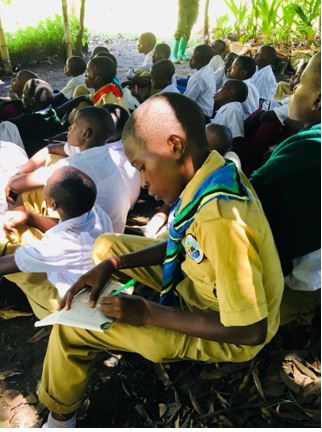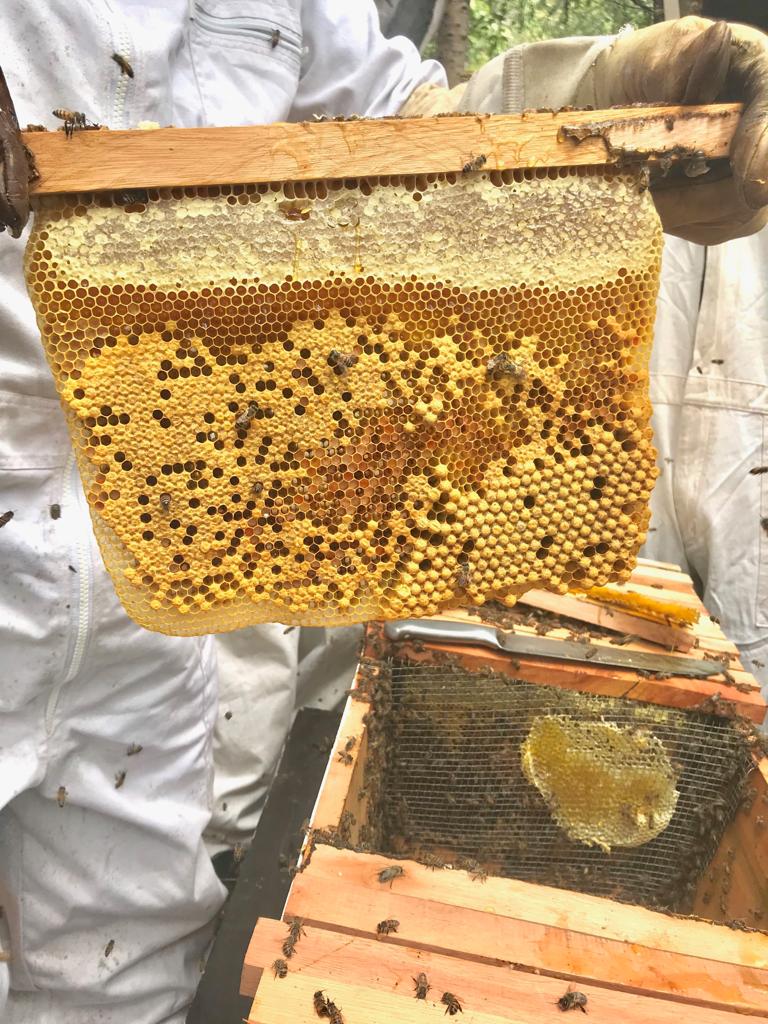Beekeeping for Sustainable Development Seminar 2019
The majority of people within East Africa are engaged in agriculture as their main source of income. Combined with booming regional population growth this means that more pressure is being placed on natural resources. Examples of this include the felling of trees in order to create charcoal, or slash and burn agricultural practices. All of this creates a hazard not only for the environment but also shows how unsustainable practices can lead to advanced ecological degradation.
How do you add value to the natural forests so they are not seen only as a biofuel source? How can socioeconomic growth be boosted through simple and traditional methods? What overlooked natural resources are readily available to people in rural communities? These are all questions that we ask ourselves. The only way to preserve the environment is by revealing to local farmers that there is extra value in its preservation.
Through strategic training exercises local residents are invited to partake in reforestation and beekeeping initiatives. Last month we hosted a training exercise for a local secondary school and scout troop.
How do you add value to the natural forests so they are not seen only as a biofuel source? How can socioeconomic growth be boosted through simple and traditional methods? What overlooked natural resources are readily available to people in rural communities? These are all questions that we ask ourselves. The only way to preserve the environment is by revealing to local farmers that there is extra value in its preservation.
Through strategic training exercises local residents are invited to partake in reforestation and beekeeping initiatives. Last month we hosted a training exercise for a local secondary school and scout troop.
This training involved a discussion around general theory and how best to bait hives with wax in order to attract a swarm of bees. There was significant interest from the participants in the different occupations of the bees, drone, worker, queen, and the length of their various life spans. Observations were made on the anatomic nature of the bees and how they process pollen into honey.
We also focused on the practical elements of beekeeping. This included the fabrication of ‘starter strips’, baiting hives, primary swarms and strategically placing hives in forested areas to best preserve the location from deforestation. All of the participants had a chance to be involved in using the bee smokers and instructed how to use just the correct amount of smoke so as to not impact the flavor of the honey. Participants were also taught best methods to properly dress and cover themselves using the protective gear provided for harvest preparation.
The final training segment involved how best to incorporate marketing in ones business. This included how to properly gather, process, and package honey for sale. The importance of co-ops was discussed in order for groups to get special permission to lobby sections of government forest for their use. This would also give them combined purchasing power to get better deals on packaging materials for their product.
We also focused on the practical elements of beekeeping. This included the fabrication of ‘starter strips’, baiting hives, primary swarms and strategically placing hives in forested areas to best preserve the location from deforestation. All of the participants had a chance to be involved in using the bee smokers and instructed how to use just the correct amount of smoke so as to not impact the flavor of the honey. Participants were also taught best methods to properly dress and cover themselves using the protective gear provided for harvest preparation.
The final training segment involved how best to incorporate marketing in ones business. This included how to properly gather, process, and package honey for sale. The importance of co-ops was discussed in order for groups to get special permission to lobby sections of government forest for their use. This would also give them combined purchasing power to get better deals on packaging materials for their product.
In a world where the environment is rapidly changing, it is our firm belief that businesses have an ethical duty to care for the environment in the communities in which they are working. If everyone takes a step towards sustainability the world will be a better place to live. According a recent USAID report Tanzania is the 26th country most vulnerable to climate change in the world. This is projected to increase in the coming years if deforestation and other unsustainable practices are not slowed or reversed. Ideally, we can all make a difference by creating jobs, inspiring youth to care for their surroundings, and fostering resiliency and adaptation in order to restore the ecosystem to what it once was.



